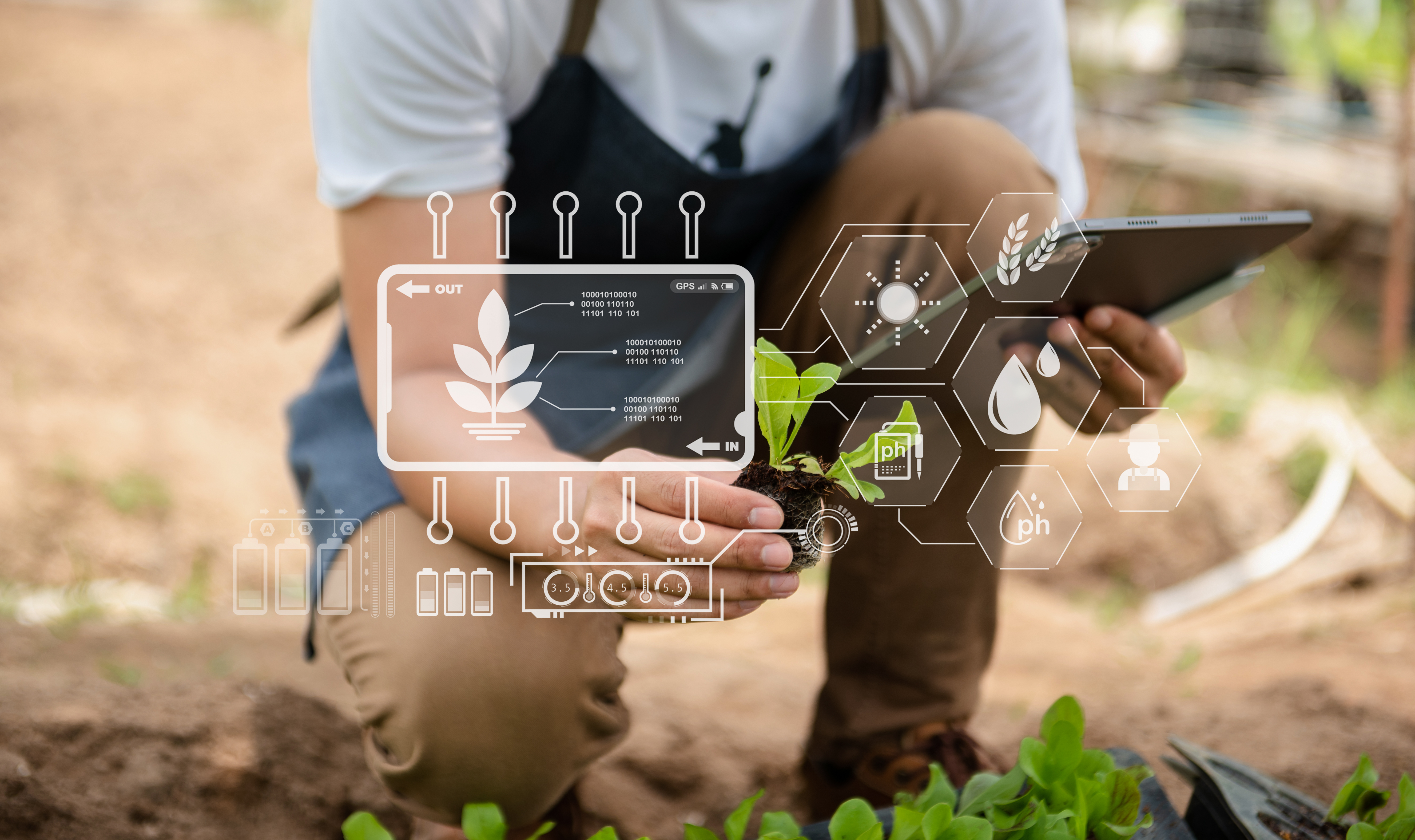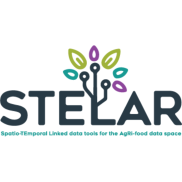Agri-data Management: Who Can Benefit from Accessible Agri-data?
As a primary food source for the global population, agriculture is essential for sustaining life, fostering economic development, preserving the environment, and maintaining social and cultural well-being. Agriculture is a source of shared prosperity, offering advantages to a wide range of stakeholders, including farmers, businesses, researchers, and the general public.
In modern farming, a wealth of data is produced daily, including satellite data and insights from equipment sensors, weather stations, databases, and cameras. Each type of data brings unique characteristics that determine its significance for stakeholders throughout the agrifood value chain. Handling the analysis of this extensive data pool is a considerable challenge, but proficient agri-data management can empower farmers, enabling them to make strategic and well-informed decisions.
In the era of rapid technological progress, data volumes are rising. Predictions from Statista indicate a global data generation of over 180 zettabytes by 2025. With data collected from diverse sources and tools, each using unique formats and terminology, it’s equivalent to receiving weather, soil, and crop information in different languages. Agricultural data management systems act as translators, making these varied data sources work effortlessly by converting them into a common language.
Five Benefits of Implementing Data Management
● Automated data processing – This involves automating the discovery, selection, and customization of data sources and management tools to streamline data processing workflows for enhanced efficiency and user-friendliness.
● Greater reliability – Data management systems enhance data reliability by minimising redundancies, preventing tampering, and unifying organisational data flows for agile responses to market changes and customer needs.
● Data security and privacy – Data management is essential for securing sensitive information, ensuring compliance with regulations such as GDPR, and customising access levels for added security.
● Increased data scalability – Data management software ensures scalability by handling growing data volumes, automating workflows, saving time and costs, and enhancing efficiency in tasks like monthly crop yield reports for organisations.
● Readiness of data assets – This involves optimising data assets for use in AI applications, with the aim of making them easily shareable within a common data space.
Accessible Agri Info with STELAR
A growing array of projects is committed to effectively utilising vast amounts of data collected daily from farms by implementing agricultural data management. The leading force in making this data accessible to participants in the agricultural sector and the rest of the value chain is the STELAR project. The STELAR team is dedicated to crafting data value chains that align with contemporary requirements and tackle challenges related to data exploration, integration, interoperability, and annotation throughout various stages of the food supply chain.
Information obtained from various applications and platforms showcases diverse structures and formats. In response to this challenge, STELAR is actively engaged in the creation of a Knowledge Lake Management System (KLMS). This innovative system aims to facilitate seamless connections and comprehension of heterogeneous data. The implementation involves leveraging a tool designed to autonomously establish connections between disparate data types.
In the upcoming sections, we’ll delve into the details about which groups stand to gain the most from readily available agricultural data and explore the specific ways in which these benefits will unfold.
Farmers
Today’s farmers commonly integrate precision farming practices into their daily operations. Precision farming involves using technology and data to optimise agricultural practices, tailoring them to specific conditions for enhanced efficiency. Farmers leverage agri-data to precisely manage resources, resulting in improved crop yields and sustainable farming practices. Similarly, access to weather forecasts, soil health, and market information can help farmers make informed decisions.
Accessible agricultural data empowers farmers to proactively manage risks in food supply lines. For instance, monitoring crop health and weather patterns enables early detection of potential threats like pests, diseases, or extreme weather events, enhancing overall risk mitigation efforts. Various factors, including regulatory issues, weather conditions, plant and animal diseases, and climate change, impact food safety and fraud. By establishing correlations among these factors, farmers would gain valuable insights that can serve as predictors for upcoming incidents related to food safety and fraud.
Comprehension of heterogeneous data enabled by the KLMS will provide access to critical data for risk assessment, integrating information on recalls, border rejections, suppliers, lab tests, and more.
Data Analysts and Scientists
Agricultural researchers can analyse agri-data to study trends, identify patterns, and develop innovative solutions for crop improvement and sustainable practices. They also routinely collect, clean, integrate, and prepare data for use in complex systems. At the moment, though, many data analysts and scientists lose time and effort in performing manual tasks of this nature.
This is why STELAR will cater directly to the needs of data scientists. The planned KLMS will support and automate the creation and management of FAIR (Findable, Accessible, Interoperable, Reusable) and AI-ready data in an automated and energy-efficient way.
Technology Providers
Generating innovation-based growth, companies developing agricultural technology harness agri-data to enhance existing solutions and forge new tools tailored to meet the ever-evolving needs of the agricultural sector. By leveraging the wealth of agricultural data, these companies gain invaluable insights into crop health, weather patterns, and market dynamics, allowing them to refine and optimise their technologies.
This iterative process not only leads to the enhancement of current agricultural solutions but also fosters the creation of novel tools that contribute to the overall progress and sustainability of the agricultural industry. The continuous integration of agri-data into technological advancements underscores the pivotal role it plays in driving innovation and propelling growth within the agricultural technology sector.
Agribusinesses
In agribusiness, leveraging agri-data transforms supply chain management by enabling the tracking and prediction of crop availability. This optimization minimises waste and enhances operational efficiency.
Additionally, agribusinesses utilise agri-data for market intelligence, accessing real-time trends and consumer preferences to make informed decisions, ensuring adaptability in a dynamic marketplace.
Conclusion
In summary, accessible agri-data has the potential to improve efficiency, productivity, and sustainability across the entire agricultural value chain, benefiting various stakeholders involved in the sector.
For additional information, feel free to check the STELAR project website.
Further Reading









































































